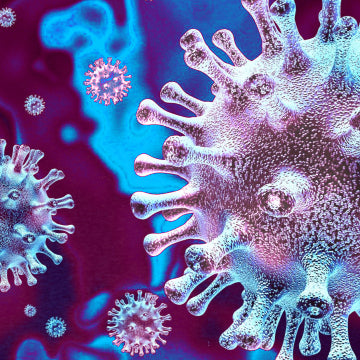
Lately a lot of attention and subsequent fear has arisen from the Coronavirus. Over the last couple weeks, I’ve received several emails and calls about the virus in regards to kefir:
- Some people are wondering if kefir itself can be contaminated by the coronavirus or another pathogen.
- Other people are wanting to know if drinking kefir helps protect against coronavirus.
- While other's are prepping for an unknown future and wondering how best to utilize kefir during a quarantine or economic hard times.
All are very interesting questions. I will start with the first:
Can kefir (or another cultures) get contaminated by a pathogenic virus or bacteria?
The short answer is a resounding no.
The reason there is fear is some people who are not that familiar with kefir may see it like a petri dish – where its growing stuff, albeit good stuff. If it was like a petri dish, it would have the potential to get contaminated and grow anything.
However, kefir is nothing like a petri dish.
Kefir is, perhaps, one the most hostile places in your entire house to foreign bacteria, mold, viruses, etc. That’s why kefir doesn’t go bad. You can leave kefir out on the counter for months and it will resist all sorts of contaminates. It’s actually one of the safest places as far as contamination goes.
Between the low pH levels and active bacteria and yeast, it’s a hostile place to anything wanting to make it its new home.
Kefir can sometimes incorporate a new bacteria or yeast strain, but only if its beneficial or melds well within the matrix of other very dominate strains. It will neutralize anything else. That’s why mold and spoilage bacteria don’t typically stand a chance.
The corona virus is new so there’s very little information out there. But one study on kefir and viruses shows that kefir was able to greatly inhibit a retrovirus called HTLV-1. Kefir was able to stop the proliferation of the up to 98% while simultaneously decreasing the transcriptional levels. That’s impressive.
The bottom line is that you should have nothing to worry about. Kefir is extremely hostile to foreign bacteria, mold and even viruses. The last place you will find the virus is in your kefir. So, bottoms up and enjoy without fear.
Will kefir help protect against coronavirus?
Kefir is a nutritional powerhouse, especially milk kefir. It has so many vitamins, minerals, peptides, beneficial acids and beneficial microorganisms to keep you healthy and strong.
It has incredible immune benefits, especially against colds and viruses. Coronavirus wouldn’t be any exception.
Between the nutritional support, bio-active peptides, probiotics and an increase of t-cells, kefir will help protect against any virus. Anecdotally, we hear all the time about people who stopped getting sick after incorporating kefir into their diet.
What happens if there’s a quarantine, food shortage or economic collapse?
If there happens to be any significant food shortages, milk kefir is one superfood you would want to have on hand. No only does it protect, but it nourishes as well.
If there’s shortages in milk, finished kefir will store well. You can store the kefir the fridge for weeks and longer in the freezer. You also have the option of stocking up on some dried milk powder to make fresh kefir. Just keep in mind that dried milk powder oxidizes the cholesterol, which is not ideal. It’s only a small amount though and if there’s no alternative, that’s still a good option in my opinion.
Bottom Line
Even though there may be a lot of fear going around these days about the coronavirus, kefir should not be one of them. It won’t harbor any viruses and it’s immune benefits are highly regarded.
Kefir will protect itself and protect you from those threats.
Fear is never good for the body. The body is incredibly strong, so be confident in your own ability to be healthy. Kefir is great, but also be sure to get plenty of sunshine, fresh air and meditation or relaxing thoughts. Wishing you all the best in these difficult times.


Comments
Terry Valentine
It appears from this article that kefir grains would make a fine stand-in for a water filter on backpacking trips – ? I’m not sure how practical it would be to carry the grains along and keep them fed, but if kefir is as hostile to pathogens as you describe, they should theoretically treat stream or lake water to make it safe for drinking. If so, kefir would also come in handy during water-boil advisories or other survival situations.
June 11, 2020
David Dauza
In the article about mice & kefirs, one result was that mice fed real grain kefir had lower levels of oxidative stress and inflammation (than the other mice.) The mechanism for this was not explained, other than maybe the high anti-oxidant qualities of real kefir.
From what I can understand about covid-19, bodies that are already in a state of oxidative stress and inflammation have the worst outcomes; these are the diabetics, obese, heart disease.
I’m thinking that reduces inflammation & oxidative stress in my body is a good thing, particularly when it is a taste treat ,,, and can do no harm.
June 11, 2020
Saussez Patricia
Good evening, morning, …
I currently use and drink daily fruits kefir. Has it got the same qualitiies and range of action as milk kefir which, I understand, is basically the topic of your description.
Thank you
Patricia
April 30, 2020
Leave a comment